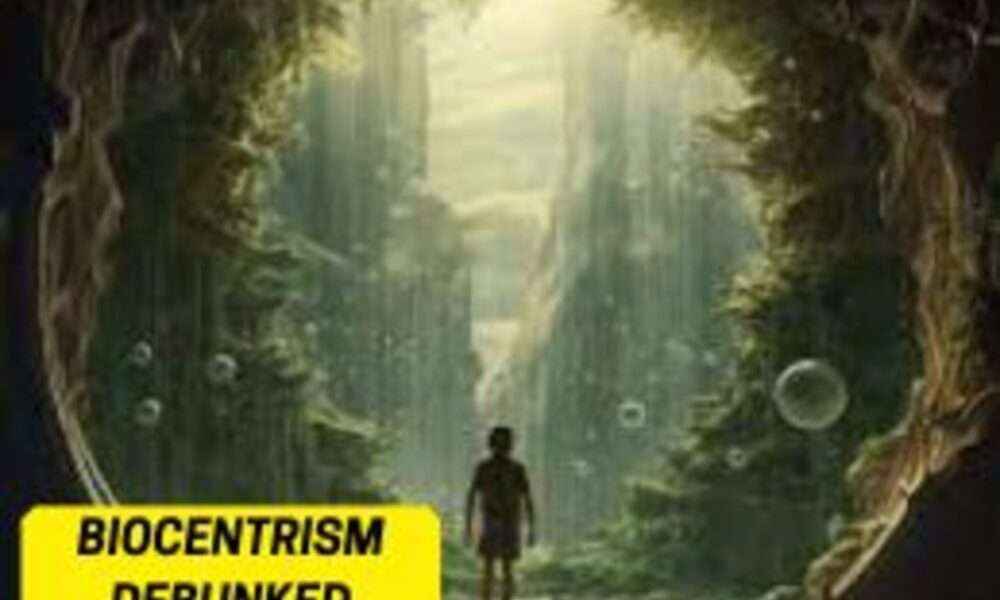Biocentrism Debunked, a philosophical concept claiming all living forms have intrinsic worth and awareness is crucial for the cosmos’ existence, is a popular belief that needs to be critically evaluated and scientific evidence substantiated to disprove it, separating reality from fiction.
The Foundation of Biocentrism Debunked
What is Biocentrism Debunked?
Dr. Robert Lanza’s “Biocentrism Debunked” theory suggests that awareness is the most crucial aspect of the cosmos, and that life creates the universe.
The Role of Consciousness
According to Biocentrism Debunked, consciousness not only defines reality but also implies that the universe would not exist without living beings to perceive it.
The Immortality Conundrum
One of the key claims of biocentrism is that death is an illusion, and consciousness is eternal. This belief challenges traditional notions of mortality.
Debunking Biocentrism: Scientific Rebuttals
The Anthropic Principle
Biocentrism Debunked, according to its detractors, mainly relies on the anthropic principle, which holds that the cosmos seems perfectly designed for life because we are here to see it.
Lack of Empirical Evidence
Biocentrism is a theoretical concept that lacks strong empirical evidence to support its claims, making it a theoretical construct rather than a recognized scientific theory.
Quantum Mechanics Misinterpretation
Some proponents of biocentrism base their arguments on quantum physics. Many experts contend, nonetheless, that this interpretation is inaccurate in its depiction of the underlying nature of quantum events.
Subjective Nature of Consciousness
While biocentrism claims that consciousness shapes reality, the subjective nature of consciousness makes it challenging to verify scientifically.
The Multiverse Alternative
Multiverse Theory
In contrast to biocentrism, the multiverse hypothesis postulates that there may be several worlds, each with a distinct set of physical laws and constants.
Explaining Fine-Tuning
The idea that there are innumerable more universes with various properties provides an alternate explanation for the universe’s apparent fine-tuning.
The Role of Probability
Multiverse theory argues that the vast number of universes in existence increases the likelihood of one
Ongoing Research
Some proponents of biocentrism argue that it’s still a young and evolving concept. They suggest that ongoing research may eventually provide the evidence needed to support its claims.
Bridging Philosophy and Science
Additionally, biocentrism encourages multidisciplinary conversations about the nature of consciousness and the world by acting as a link between philosophy and science.
The Ethical Dimension
Biocentrism has ethical implications, emphasizing the value of all life forms. This perspective has sparked discussions about environmental conservation and animal rights.
Potential Insights
Biocentrism, despite its eventual disprovenness, may provide valuable insights into the nature of consciousness and its impact on our worldview.
The Importance of Skepticism
A key component of the quest for scientific understanding is skepticism. It’s crucial to rigorously examine uncommon ideas while also exploring them.
Conclusion
Separating Fact from Fiction
Biocentrism, a philosophical and scientific concept, has sparked debates but lacks the empirical data and scientific support required for serious consideration as a scientific theory, despite its unique perspective on the cosmos and consciousness. Biocentrism is criticized for relying too largely on subjective perceptions and for lacking specific evidence.
Contrarily, the multiverse theory proposes that there are several more worlds with various physical rules and constants, offering an alternate explanation for the tuning of our universe. This hypothesis provides a more solid and fact-based understanding of the universe’s composition.
FAQs
Is the scientific community generally in agreement with biocentrism?
No, the scientific community does not generally endorse biocentrism. It has scant empirical backing and is regarded as a fringe hypothesis.
Can biocentrism account for the universe’s beginnings?
Although biocentrism does offer a distinctive viewpoint on the universe’s beginnings, it does not have the supporting scientific data.
What is the primary objection to biocentrism?
The primary objections to biocentrism are the dearth of factual support and dependence on arbitrary definitions of awareness.
How does biocentrism compare to the multiverse theory?
The multiverse theory offers an alternate explanation for the tuning of our world by positing that there are innumerable more universes with distinct physical rules.
What role does the multiverse theory play in cosmology?
As a possible explanation for the observed tuning of our universe, the multiverse idea has gained ground in cosmology. It offers a more rational alternative to biocentrism.
Read More: Techburneh.com










